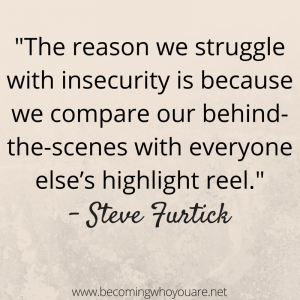How to Overcome Fear of Missing Out (FOMO)
Fear of missing out (FOMO): “a pervasive apprehension that others might be having rewarding experiences from which one is absent.”
– Wikipedia
One of the first times I remember experiencing FOMO was when I was 10 and recovering from meningitis. A friend had a birthday sleepover and, although I was allowed to go to the party earlier in the day, I wasn’t allowed to stay over. Of course, because of this I was automatically convinced that this was going to be the BEST SLEEPOVER EVER and was gutted I was missing out.
As an adult, I’ve noticed that FOMO seems to come up around specific needs.
For me, it’s connection. I see Facebook friends posting pictures of themselves at conferences and suddenly it seems like it would totally be worth paying thousands of dollars, dealing with the upheaval and jet-lag and travelling halfway around the world just for a two-day event. For some people, it’s things like visibility, recognition, and/or acceptance: they see a colleague or friend posting in a big online publication and fear they’re slipping behind. They see friends getting married, buying houses, having babies, travelling, and their life feels somewhat mundane in comparison.
Most of all, the thing I’ve noticed most about FOMO is that it’s not just about missing out. Depending on the context, it’s also tied to envy, a fear of regret and a sense of not quite being or having enough.
Fear of missing out isn’t just about missing out; really, it’s about being enough.
Click To Tweet
As much as I love this crazy internetty world we live in, I’m also aware it can become one big vicious cycle of FOMO. As Dr. John M. Grohol illustrated in this article, social media is one of the breeding grounds for FOMO. We feel the temptation to edit our lives, posting only the most flattering photos, the coolest links, and the most like-worthy updates. We also see other people doing the same, which further fuels our urgency to produce flattering photos, cool links and like-worthy updates. And so the cycle continues.
So… what to do to deal with FOMO?
Remember: Just because we can do something doesn’t mean we should
Just because we can monitor our email inbox from waking until sleeping, put that course on our credit card or attend every social event we’re invited to doesn’t mean doing these things is a good plan. This is why it’s important to pay attention to our values and ask ourselves “Is this going to bring me closer to, or take me further away from what I truly want?”
Slow down
FOMO usually comes with a degree of urgency, which can lead us to make bad decisions. It’s somewhat ironic that in trying to avoid regret, we end up doing things that leave us more likely to experience regret. Whenever I experience FOMO, I know that’s a good signal to sloooow down and take a step back before I react in a hasty way to the situation.
Look for the underlying needs
According to one study, people who frequently experience FOMO also tend to have unmet needs for love and respect, which makes sense given the contexts in which FOMO usually rears its head.
I’ve started paying viewing my own episodes of FOMO as a cue that it’s time to up my connection quota and take steps to meet that need myself. This doesn’t even have to involve attending the event/taking part in the activity that provokes my FOMO because it’s not really about that particular event or activity: it’s about the root needs underneath. Once I acknowledge that need(s), the urgency dissipates.
Be Pro-active, not re-active
Something I’m working on right now is approaching life in a way that’s pro-active rather than re-active. Instead of running around putting out metaphorical fires all the time, I’m trying to make sure that I address nagging issues before they become big problems, that I’m ahead of deadlines, and that I under-commit rather than over-commit. Decisions motivated by FOMO fall into the “re-active” category and usually come with more stress and anxiety than they’re worth (even if the experience ends up being positive).
It’s OK to be “just you”
And I don’t mean just in the context of “only,” but in the context of “unaltered.” As Judy Garland famously said, “Always be a first-rate version of yourself, instead of a second-rate version of somebody else.”
If everyone were doing the same things at the same time, the world would be a boring place. Your differences and decisions are part of what make it varied, beautiful and unique.
Finally,
Remember that it’s not over until it’s over
Missed out on an awesome dinner party? Host your own.
Wanted to go to a great event but didn’t find out about it until the last minute? Get a few of your favourite people together for your own workcation.
See a friend making leaps and bounds with her career? Ask her how she’s doing it.
Right now, as you’re reading this, you’re still here, still alive (and may it stay that way for a good many years). That means you aren’t missing out. You probably have far more opportunities to create what you want than you realise…
How do you deal with FOMO? Join the conversation in the BWYA community and share your thoughts .
Image: Ken Lawrence
The post How to Overcome Fear of Missing Out (FOMO) appeared first on Becoming Who You Are.












